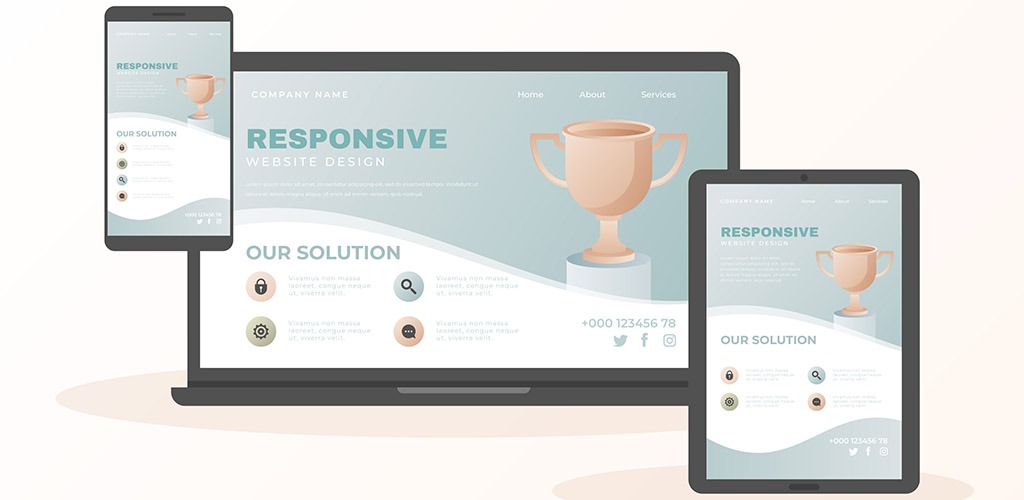Welcome aboard, readers! Prepare yourself for an exhilarating journey into the fascinating universe of WordPress SEO. Whether you’re a seasoned website owner or a beginner, optimizing your website for search engines is an integral part of developing a thriving online presence. By using the correct methods, you can amplify your website’s exposure, attract more visitors, and ultimately boost your sales.
In this article, we’ll delve deeply into the realm of WordPress SEO, examining the most effective techniques and strategies that will help elevate your website to new heights. So, fasten your seatbelts, have a hot cup of coffee, and get ready for an adventure that will propel your website to the top of the charts.
Why SEO Plays a Pivotal Role to Boost Website Visibility?
Search Engine Optimization (SEO) plays a crucial role in boosting website visibility for several reasons.
Improved search engine ranking

SEO helps in optimizing the website structure and content to meet the search engine algorithms, which results in better search engine ranking. When a website ranks higher in search engines, it gets more visibility, resulting in increased traffic.
Better user experience

SEO aims to optimize the website structure and content to make it more user-friendly, which leads to a better user experience. When users have a positive experience on a website, they are more likely to return and recommend it to others, which can result in increased traffic and visibility.
More targeted traffic

It helps in optimizing the website content to target specific keywords and phrases that are relevant to the business. This results in more targeted traffic, as the people who are searching for those keywords are more likely to be interested in the business.
Competitive advantage
Search Engine Optimization can provide a competitive advantage by helping a website to rank higher than its competitors in search engine results. This can lead to increased visibility, more traffic, and more customers.
Cost-effective
It is a cost-effective way to increase website visibility compared to other marketing strategies. It doesn’t require paid advertising or expensive campaigns, making it an ideal strategy for small businesses and startups.
Technical SEO Best Practices for WordPress
Technical SEO is an essential component of any website’s optimization process. With the rise of WordPress as a popular content management system, it becomes crucial for site owners to understand the best practices in optimizing technical SEO for their WordPress sites. Here are the shots.
Use a responsive theme

Your website’s theme should be well-coded, mobile-responsive, and optimized for SEO. Avoid using themes with too many unnecessary features that can slow down your website.
Optimize website speed

A fast-loading website is crucial for both user experience and search engine rankings. You can improve your website’s loading speed by compressing images, minimizing code, and using a caching plugin.
Implement SSL encryption

Implementing SSL encryption on a website is no longer an option but a necessity in today’s digital world. It is not just about securing your website, but it also has a significant impact on your SEO ranking. Google has made it clear that websites with SSL certificates will rank higher than those without.
Use a sitemap plugin
A sitemap is a list of pages on a website that helps search engines understand the structure of the site and its content. By using a sitemap plugin, you can create an XML sitemap that makes it easier for search engine crawlers to navigate and index your site.
Use an SEO plugin
An SEO plugin can help you optimize your website content, meta tags, and other elements that will make it more visible to search engines. By using an SEO plugin, you can save time and effort while ensuring that your website is optimized for search engines.
On-page SEO Best Practices for WordPress
On-page SEO for WordPress is essential to ensure that your website ranks high on search engine results pages. As a WordPress user, it is important to understand the basic principles of search engine optimization (SEO) and how they can be applied to your website. On-page SEO refers to the practice of optimizing various elements on a web page in order to improve its visibility and ranking in search engines like Google. Here are the best practices for on-page SEO for WordPress.
Use descriptive and SEO-friendly URLs
In the world of search engine optimization, every little detail counts. One of the most crucial on-page SEO factors is the URL structure of your website’s pages. It’s important to use descriptive and SEO-friendly URLs that accurately describe the content of each page. Doing so can help improve your website’s ranking in search results and provide a better user experience for your visitors.
Optimize page titles and meta descriptions
Page titles and meta descriptions are two of the most important elements of on-page SEO. They serve as a brief summary of the content on your page, helping both search engines and users to quickly understand what your page is about. Optimizing these elements can lead to higher click-through rates, improved user engagement, and ultimately better search engine rankings.
Use header tags properly
Header tags are an important part of on-page SEO. They help search engines understand the structure and hierarchy of your content, which ultimately leads to better rankings in search results. There are six levels of header tags: H1, H2, H3, H4, H5, and H6. Each level indicates a different level of importance and should be used accordingly.
Use internal linking
Internal linking is a powerful tool that can boost your On-page SEO efforts. When done correctly, it can increase the visibility of your website and help search engines better understand the structure of your content.
Optimize images
Optimizing images is one of the most crucial aspects of on-page SEO. It not only enhances the overall user experience but also boosts your website’s performance in search engine rankings. When images are optimized properly, they can drive more traffic to your site and increase engagement rates. However, if they are not optimized correctly, it can negatively impact your site’s loading speed and result in a higher bounce rate.
Create quality content
Quality content not only helps to improve the ranking of your website but also boosts user engagement and increases conversion rates. However, creating quality content requires a well-planned approach that involves identifying your target audience, understanding their needs, and delivering relevant information in a clear and concise manner.
Off-page SEO Best Practices for WordPress
Off-page SEO is an essential aspect of any WordPress website’s optimization strategy. It mainly focuses on increasing the site’s visibility and authority outside of it, leading to higher rankings in search engines. However, many beginners often overlook this crucial task as they are more concerned with on-page optimization. Here are some off-page SEO best practices for WordPress websites.
Build high-quality backlinks
Off-page SEO is a crucial aspect of optimizing your WordPress website for search engines. One of the essential components of off-page SEO is building high-quality backlinks to your site. Backlinks are links from other websites that point to your website, and they are considered an important ranking factor by search engines.
Building high-quality backlinks involves several strategies, including creating valuable content that other sites will want to link to, reaching out to influencers and bloggers in your niche for link-building opportunities, and using social media platforms effectively.
Leverage social media
Social media has become an integral part of our lives. It is a powerful tool for businesses to reach out to their target audience and drive traffic to their website. Social media can also be leveraged for off-page SEO for WordPress websites, which is critical in improving the website’s search engine ranking.
To leverage social media for off-page SEO, it is essential to create high-quality content that resonates with your target audience. This will encourage them to share your content on social media platforms, which will help increase traffic and improve your website’s visibility. You should also make sure that your social media profiles are optimized by using relevant keywords in your bio and posts.
Engage in guest posting
Guest posting is a powerful strategy for increasing the visibility of your WordPress website. By publishing high-quality content on relevant websites, you can attract new readers and build authority in your niche. But guest posting isn’t just about getting traffic – it’s also an essential component of off-page SEO.
When you engage in guest posting, you’re creating backlinks to your website from authoritative sources. These links signal to search engines that your site is trustworthy and valuable, which can improve its rankings in search results. In addition, guest posting often leads to social media shares and mentions from other bloggers, further expanding your reach.
Advanced WordPress SEO Techniques
As the world of digital marketing continues to evolve, it is crucial to stay ahead of the game by utilizing innovative and effective strategies that will set your website apart from the competition. Let’s get into those strategies.
Use schema markup
Schema markup is a powerful tool that can give your WordPress site an edge in search engine optimization. This advanced technology allows you to provide detailed information about your content, making it easier for search engines to understand and display in relevant search results. By using schema markup, you can improve the visibility of your site’s content and drive more targeted traffic to your pages.
Implement AMP
Implementing AMP (Accelerated Mobile Pages) is an effective way to improve your WordPress site’s SEO. This open-source platform provides a lightweight version of your web pages, optimized for mobile devices. With AMP, your content loads much faster on mobile devices, improving user experience and engagement. Additionally, Google’s search algorithm favors pages that load quickly on mobile, so having AMP can give you a significant edge in search results.
Optimize for voice search
In today’s fast-paced world, voice search is becoming increasingly popular among consumers. With the rise of virtual assistants such as Siri and Alexa, it’s important for businesses to optimize their websites for voice search. This not only improves user experience but also enhances their SEO rankings.
When it comes to optimizing WordPress sites for voice search, there are a few key techniques that can be used. First and foremost, it’s important to ensure your website is mobile-friendly and responsive. This means that your site should be easily accessible from any device including smartphones and tablets.
WordPress SEO Maintenance Best Practices
WordPress is a popular content management system (CMS) used by millions of website owners around the world. One of the most important aspects of owning a WordPress website is ensuring that it’s optimized for search engines. This requires ongoing maintenance to ensure that your site remains visible and relevant to both search engines and visitors alike. Here are some ways for WordPress SEO maintenance.
Monitor and analyze website performance
Website performance is a critical aspect of WordPress SEO maintenance. Without proper monitoring and analysis, it can be challenging to identify potential issues that could negatively impact your website’s search engine ranking. Therefore, it’s essential to have a reliable system in place for tracking your website’s metrics and analyzing data to make informed decisions.
Regularly update plugins and themes
Regularly updating plugins and themes is an essential aspect of WordPress SEO maintenance. It’s not enough to just update the core software; you also need to keep your plugins and themes up-to-date. This ensures that your website runs smoothly, remains secure, and stays optimized for search engines.
Outdated plugins can cause issues with your website’s functionality and security. They may become incompatible with newer versions of WordPress or other plugins, leading to errors and even crashes. Regular updates will fix bugs and add new features that help improve your site’s performance.
Fix broken links
Broken links can be a real headache for website owners. Not only do they affect the user experience of your visitors, but they can also damage your search engine rankings. This is particularly true in the case of WordPress websites, where broken links are quite common due to frequent updates and changes made to plugins and themes.
Keep content fresh and up-to-date
Keeping your content fresh and up-to-date is a critical aspect of any successful SEO strategy. Whether you’re running a small blog or managing a large corporate website, regular updates are essential to maintain high search engine rankings and attract new visitors. With the right approach to WordPress maintenance, you can keep your site’s content fresh and engaging without sacrificing quality or relevance.
One effective way to keep your content up-to-date is by conducting regular audits of your website’s pages and posts. This involves reviewing each piece of content on your site for accuracy, relevance, and engagement level.
Final Thought on Best Practices for WordPress SEO
WordPress SEO is an important, yet often overlooked part of website optimization. By following the best practices outlined in this article, you can ensure that your website is seen by more people, increasing your reach and visibility. Optimizing content, increasing site speed, and optimizing meta tags are just a few of the ways to increase traffic to your website. Additionally, focusing on local SEO, improving internal link structures, and keeping up with Google algorithm changes can also help drive more visitors to your site.








